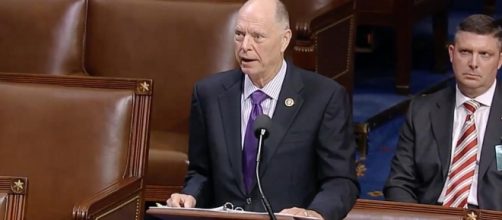Rep. Bill Posey, R-Florida seriously wants Americans to go back to the moon. He offered a bill mandating a lunar return several times during the Obama years, only to see it fail. President Obama was not interested in going back to the moon and was certainly not agreeable to listening to congressmen trying to persuade him otherwise. But Mashable reports that Posey has introduced his bill again. The difference this time is that President Donald Trump is president now and has indicated that he has great interest in returning to the moon, the sooner the better.
Posey’s arguments for returning to the moon are familiar to those people who have followed space policy debates. The moon is not only a prerequisite step on the Journey to Mars, but also has some inherent benefits, political, economic, scientific, and for reasons of national security. The last is a reference to the fact that both Russia and China, hostile powers, have lunar ambitions. Posey also thinks that the program would give NASA much-needed focus that the space agency currently lacks on the nebulous and long term Journey to Mars. The Trump administration seems to agree with the last as it has asked NASA to evaluate the feasibility of sending astronauts around the moon as early as 2019.
Posey is certainly open to commercial participation in the space program, He went on a tangent of sorts of having private companies explore and mine asteroids, freeing up NASA resources for going back to the moon.
Most recent scenarios of a lunar return suggest a space agency/commercial/international partnership to share the cost and to expand the scope of the program.
Mainly, Posey would like a healthy increase in NASA’s budget to accommodate a return to the moon. The space agency’s funding level was four percent of the federal budget during the height of Apollo. Currently NASA spends less that.5 percent of overall federal spending. Posey thinks that raising that percentage to an even one percent would be a great idea. Of course, the space agency would be able to do a lot by more than doubling its current spending level. The challenge would be spending that new bounty wisely.

